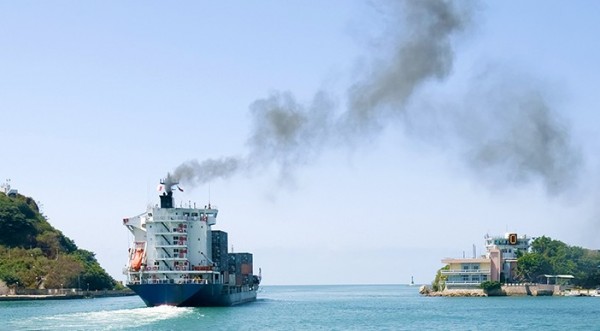I wanted to let you know about what we are rolling out at Depth Logistics this year to enhance our service offering and pass on some other good news for our clients in general.
We are excited to announce that we have begun investing in trucking assets to improve the service to our clients and ensure we are always delivering on our brand promise of “Absolute Reliability”. The fleet will start taking to the road in February and will include 100T low loaders, flat top and drop deck trailers and we have a side loader trailer also on order for container deliveries.

The truck fleet will be based at our new terminal, which will be established at the Port of Brisbane. The terminal will broaden the scope of services we can supply clients “in house” and will include the full suite of Biosecurity treatments including washing, a customs bond store, storage, container packing/unpacking and pre-delivery processing of RoRo cargo. The terminal will have ultra-high security for clients we act for in moving sensitive cargo.

Major Quarantine issues with brown marmorated stink bug are ongoing and it seems may be here to stay. So far we have succeeded in minimising the impacts of this on our clients through being hyper-vigilant on carrier selection and offshore treatment providers and to soon have fumigation ability in our own terminal in Brisbane will mean faster clearance of cargo we are handling.

The investments in our trucking fleet and new terminal for the company are underpinned by the good recovery we are seeing from our resources clients and growth in defence procurement supply chains we are working in.
We are recruiting more new senior team members and have already recently hired Chad Pennington as our new financial controller and Holli Delaforce as our executive assistant.
Our Clark, Philippines team have just moved to a brand new much larger branch office to give us more room to grow.

This year we will continue to invest in the digital delivery of more of our services as trends are that clients are preferring to use digital channels more and more to accomplish their shipping. An example of this is with our myCargo Insurance platform we launched late last year, which many of our clients now love using.

1 January 2019 also heralded the commencement of more Free Trade Agreements (FTA) for Australia with other countries. Many import duty rates have dropped as part of phased reductions in tariffs as of this date. More FTA’s are coming online with other countries this year. See this link from the Dept of Foreign Affairs and Trade to get a great overview of what FTA’s are in operation and coming.
I am sincerely excited with our 2019 strategic direction and expanding our own “in house” logistics capabilities and thank you for your ongoing support.
In the meantime if there is any help, advice or quotes you need, please contact me 24/7 toll free on 1DEPTH (133784) or +61730544670.
Yours with “Absolute Reliability”,
Brad Skelton
We are excited to announce that we have begun investing in trucking assets to improve the service to our clients and ensure we are always delivering on our brand promise of “Absolute Reliability”. The fleet will start taking to the road in February and will include 100T low loaders, flat top and drop deck trailers and we have a side loader trailer also on order for container deliveries.

The truck fleet will be based at our new terminal, which will be established at the Port of Brisbane. The terminal will broaden the scope of services we can supply clients “in house” and will include the full suite of Biosecurity treatments including washing, a customs bond store, storage, container packing/unpacking and pre-delivery processing of RoRo cargo. The terminal will have ultra-high security for clients we act for in moving sensitive cargo.

Major Quarantine issues with brown marmorated stink bug are ongoing and it seems may be here to stay. So far we have succeeded in minimising the impacts of this on our clients through being hyper-vigilant on carrier selection and offshore treatment providers and to soon have fumigation ability in our own terminal in Brisbane will mean faster clearance of cargo we are handling.

The investments in our trucking fleet and new terminal for the company are underpinned by the good recovery we are seeing from our resources clients and growth in defence procurement supply chains we are working in.
We are recruiting more new senior team members and have already recently hired Chad Pennington as our new financial controller and Holli Delaforce as our executive assistant.
Our Clark, Philippines team have just moved to a brand new much larger branch office to give us more room to grow.

This year we will continue to invest in the digital delivery of more of our services as trends are that clients are preferring to use digital channels more and more to accomplish their shipping. An example of this is with our myCargo Insurance platform we launched late last year, which many of our clients now love using.

1 January 2019 also heralded the commencement of more Free Trade Agreements (FTA) for Australia with other countries. Many import duty rates have dropped as part of phased reductions in tariffs as of this date. More FTA’s are coming online with other countries this year. See this link from the Dept of Foreign Affairs and Trade to get a great overview of what FTA’s are in operation and coming.
I am sincerely excited with our 2019 strategic direction and expanding our own “in house” logistics capabilities and thank you for your ongoing support.
In the meantime if there is any help, advice or quotes you need, please contact me 24/7 toll free on 1DEPTH (133784) or +61730544670.
Yours with “Absolute Reliability”,
Brad Skelton




